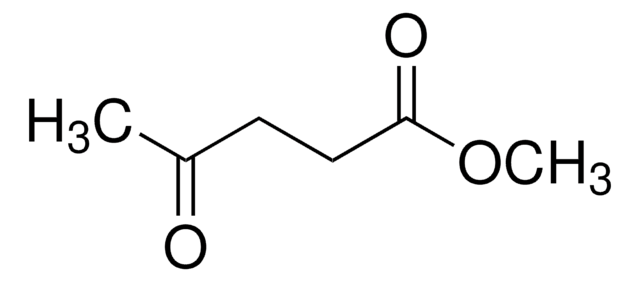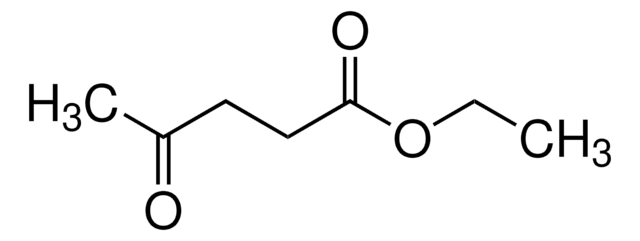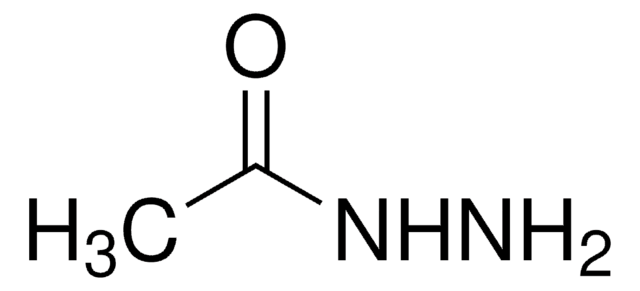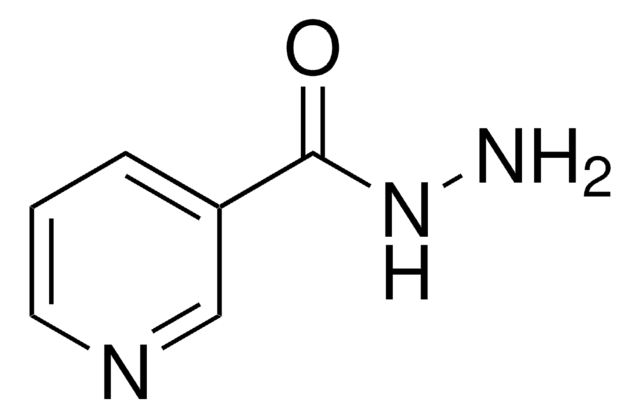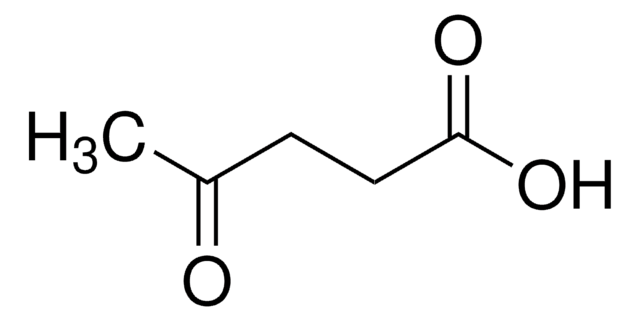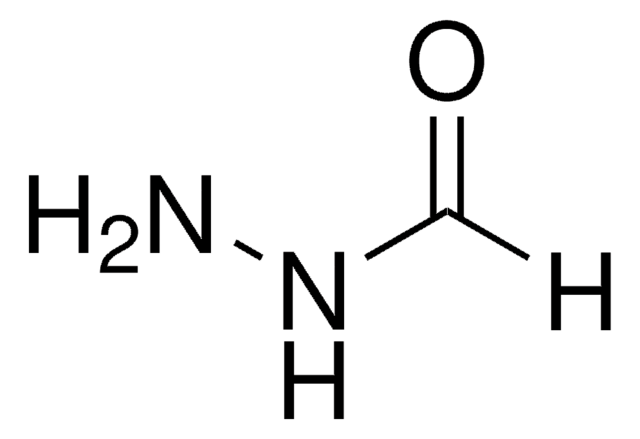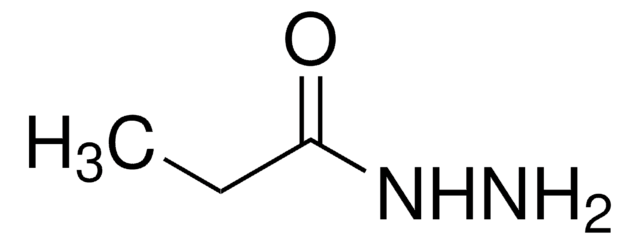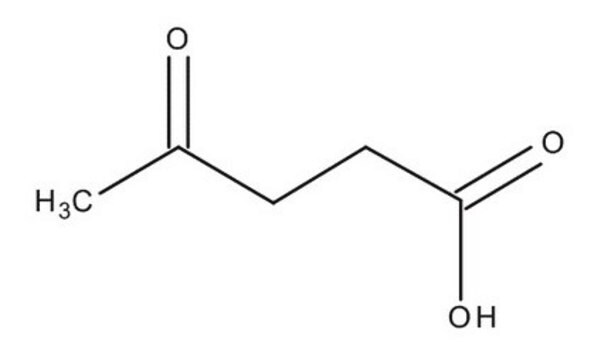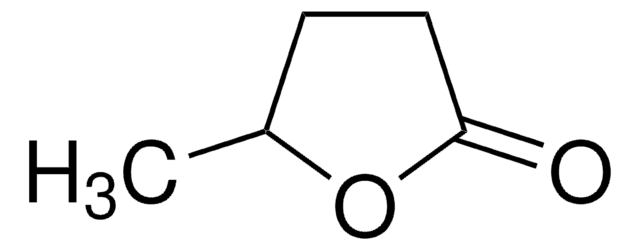122629
Ethyl levulinate
99%
Synonyme(s) :
Ethyl 4-oxopentanoate
About This Item
Produits recommandés
Niveau de qualité
Pureté
99%
Caractéristiques du produit alternatif plus écologique
Safer Solvents and Auxiliaries
Learn more about the Principles of Green Chemistry.
sustainability
Greener Alternative Product
Indice de réfraction
n20/D 1.422 (lit.)
Point d'ébullition
93-94 °C/18 mmHg (lit.)
Solubilité
H2O: freely soluble
alcohol: miscible
Densité
1.016 g/mL at 25 °C (lit.)
Groupe fonctionnel
ester
ketone
Autre catégorie plus écologique
Chaîne SMILES
CCOC(=O)CCC(C)=O
InChI
1S/C7H12O3/c1-3-10-7(9)5-4-6(2)8/h3-5H2,1-2H3
Clé InChI
GMEONFUTDYJSNV-UHFFFAOYSA-N
Vous recherchez des produits similaires ? Visite Guide de comparaison des produits
Description générale
Ethyl levulinate is a ketoester produced through the esterification of levulinic acid and is used as an oxygenated diesel additive.
Application
Mention d'avertissement
Warning
Mentions de danger
Conseils de prudence
Classification des risques
Eye Irrit. 2 - Skin Irrit. 2
Code de la classe de stockage
10 - Combustible liquids
Classe de danger pour l'eau (WGK)
WGK 2
Point d'éclair (°F)
201.2 °F - closed cup
Point d'éclair (°C)
94 °C - closed cup
Équipement de protection individuelle
Eyeshields, Gloves, multi-purpose combination respirator cartridge (US)
Faites votre choix parmi les versions les plus récentes :
Déjà en possession de ce produit ?
Retrouvez la documentation relative aux produits que vous avez récemment achetés dans la Bibliothèque de documents.
Les clients ont également consulté
Notre équipe de scientifiques dispose d'une expérience dans tous les secteurs de la recherche, notamment en sciences de la vie, science des matériaux, synthèse chimique, chromatographie, analyse et dans de nombreux autres domaines..
Contacter notre Service technique